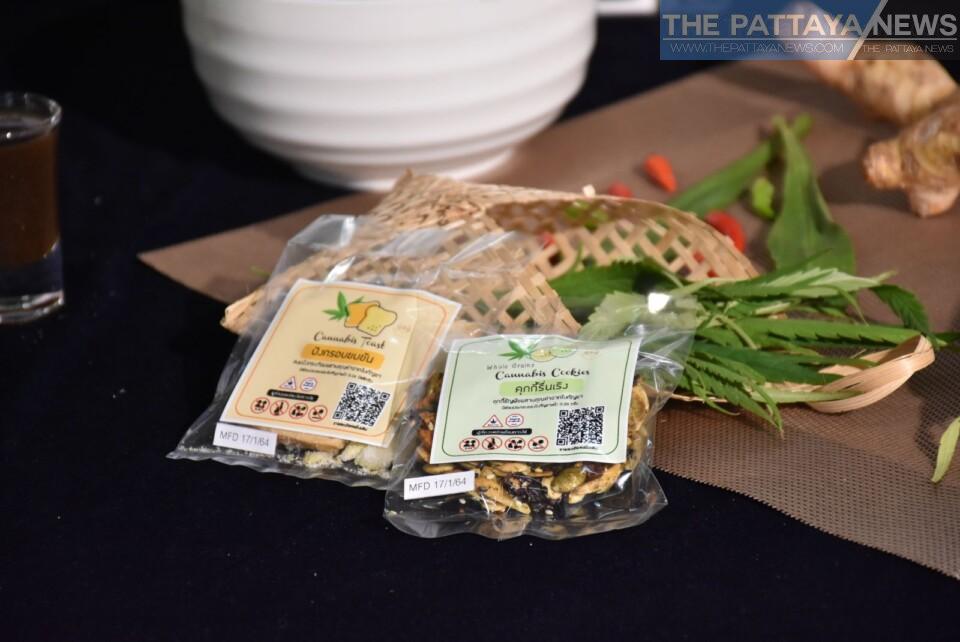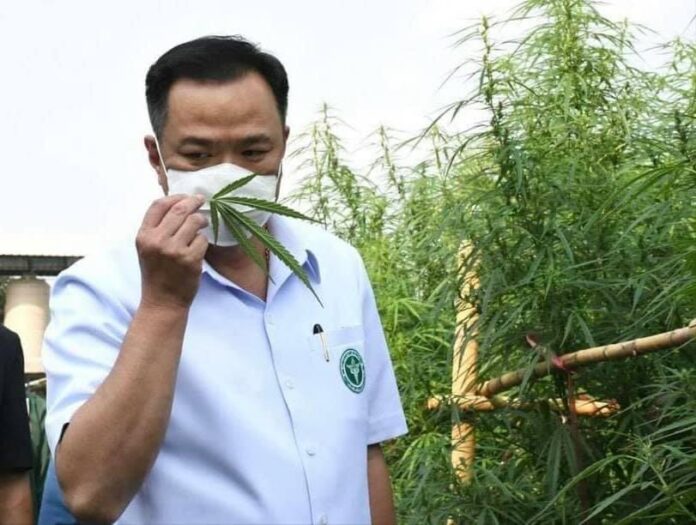Bangkok –
Public Health Minister Anutin Charnvirakul today, February 8th, has signed the draft notification of removing parts of cannabis and hemp from the Narcotics Act for medical purposes following the approval of the Narcotics Control Board.
The Minister stated that the promulgation of the Narcotics Act No. 7 on February 18th, 2019 has approved cannabis for medical use followed by the approval of its substances except the inflorescence, leaves that attached to the buds, and seeds in the following year in order to be produced in various medical products for economic value and health treatment.
The Food and Drugs Administration (FDA) also said that there could possibly be the use of cannabis for recreational purposes in designated areas in the following step after the draft becomes law. TPN stresses, however, that recreational use (ie. smoking marijuana) is still not legal at this time and likely will not be in the near future.

The movement leads to the new Narcotics Act draft of the list of category 5 of narcotics drugs which has been signed today after consulting with the Narcotics Control Board and its committee and presenting to the House of Representatives for law approval in January.
The draft would list all of the drugs that remain in Category 5, including opium, Psilocybin mushrooms, and cannabis extracts containing more than 0.2% of THC. It would be put into effect 120 days after its publication in the Royal Gazette, according to Anutin. When exactly this publication will take place is unclear, but expected in the “near” future.
Moreover, the Bhumjaithai Party, led by the Minister himself, has also proposed the Cannabis/Hemp Act to the House of the Representatives on the same day in January with its goals to 1. Develop medical benefits to Thai traditional treatments; 2. Give people more choice of medical treatments; 3. Create economic and industrial values as well as more job opportunities as it could generate income for people in the related field; 4. Encourage more medical/scientific research and innovations for the plants, and 5. Protect the customers who could be harmed by the misuse of the plants.
-=-=-=-=-=-=-=-=-=-=-=-=-=-=–=–=–=–==-
Need Covid-19 insurance for your next trip to Thailand? Click here.
Follow us on Facebook
Join us on LINE for breaking alerts!




